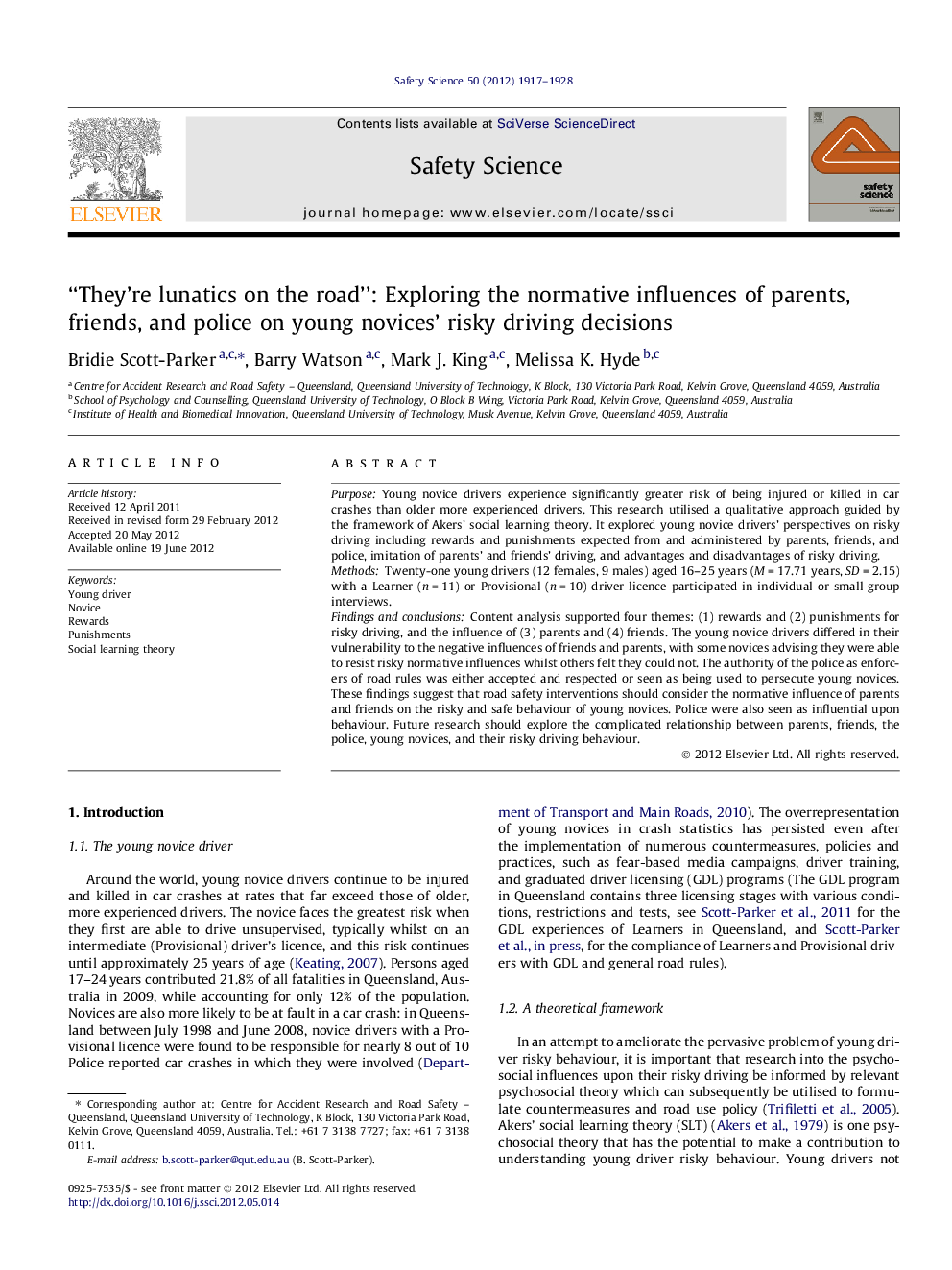| کد مقاله | کد نشریه | سال انتشار | مقاله انگلیسی | نسخه تمام متن |
|---|---|---|---|---|
| 589358 | 878703 | 2012 | 12 صفحه PDF | دانلود رایگان |

PurposeYoung novice drivers experience significantly greater risk of being injured or killed in car crashes than older more experienced drivers. This research utilised a qualitative approach guided by the framework of Akers’ social learning theory. It explored young novice drivers’ perspectives on risky driving including rewards and punishments expected from and administered by parents, friends, and police, imitation of parents’ and friends’ driving, and advantages and disadvantages of risky driving.MethodsTwenty-one young drivers (12 females, 9 males) aged 16–25 years (M = 17.71 years, SD = 2.15) with a Learner (n = 11) or Provisional (n = 10) driver licence participated in individual or small group interviews.Findings and conclusionsContent analysis supported four themes: (1) rewards and (2) punishments for risky driving, and the influence of (3) parents and (4) friends. The young novice drivers differed in their vulnerability to the negative influences of friends and parents, with some novices advising they were able to resist risky normative influences whilst others felt they could not. The authority of the police as enforcers of road rules was either accepted and respected or seen as being used to persecute young novices. These findings suggest that road safety interventions should consider the normative influence of parents and friends on the risky and safe behaviour of young novices. Police were also seen as influential upon behaviour. Future research should explore the complicated relationship between parents, friends, the police, young novices, and their risky driving behaviour.
► Parents can continue to influence driver behaviour beyond the Learner period.
► Friends likely to react to risky driving if the outcome is negative (e.g. crash).
► Friends unlikely to react to risky driving if there are no negative outcomes.
► Friends are an under used resource who could decrease risky driving by novices.
► Rewards for risky driving should be targeted and potential loss emphasised.
Journal: Safety Science - Volume 50, Issue 9, November 2012, Pages 1917–1928